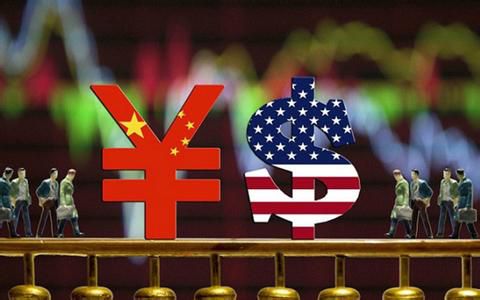Respecting rules makes the world prosperous and stable

(file photo)
Global governance with rules, systems and multilateral participation as its core is the basis of the world’s prosperity, stability and peace since the Cold War. In the development of international business, finance, science and technology and market as well as the process of constantly adjusting and developing international rules, systems and multilateral participation after the Cold War, each country respect sand obeys these rules and systems, which is the basic guarantee for improving political mutual trust among countries, maintaining open and freely competitive global economy and financial system and upholding human beings’ common interests and wellbeing.
At present, world politics is facing an unprecedented challenge: the current U.S. government repeatedly tore up “agreements” it had reached or participated in and brazenly violated the basic rules of international economic and business activities through imposing additional tariffs on Chinese products. It has already unilaterally launched the unprecedented trade friction in the history of mankind which will result in serious damage to current rules on open international business and market as well as catastrophic impacts on global economic stability and growth.
The current U.S. government, which ignores the mutually beneficial cooperation and common prosperity of the China-U.S. trade relations over the past 40 years and takes many outrageous measures regardless of order and rules of international economy and science and technology, is bringing the largest uncertainties to today’s global stability and prosperity.
It’s not uncommon to see trade frictions and disputes between the two countries. China has never tried to evade disputes, and it also has sincerity and determination to handle disputes through dialogue. However, the current U.S. government changed American China policies drastically, and even “overturned the table” on trade and science and technology. China won’t tolerate such behaviors.
Trade negotiation is needed for China and the U.S. The two sides should make up their minds to adjust trade system and deepen reform for the long-term stability of China-U.S. relations and mutual benefit as well as the building of a new political and economic basis. That’s a historical mission of those overseeing China-U.S. ties in the 21st century.
Contributed by Zhu Feng for Guangming Daily
Translated by Zhang Zhou
[ Editor: Liu Jiaming ]




More From Guangming Online
Medics from Fujian leave for Shanghai to aid in battle against COVID-19 resurgence
New int'l land-sea transport service to Indo-China Peninsula launched
Another makeshift hospital under construction in Shanghai
Tourists view tulips in Suiping County, Henan
In pics: blooming gagea flowers on grassland in Zhaosu, Xinjiang
Greek workers stage 24-hour general strike over high prices